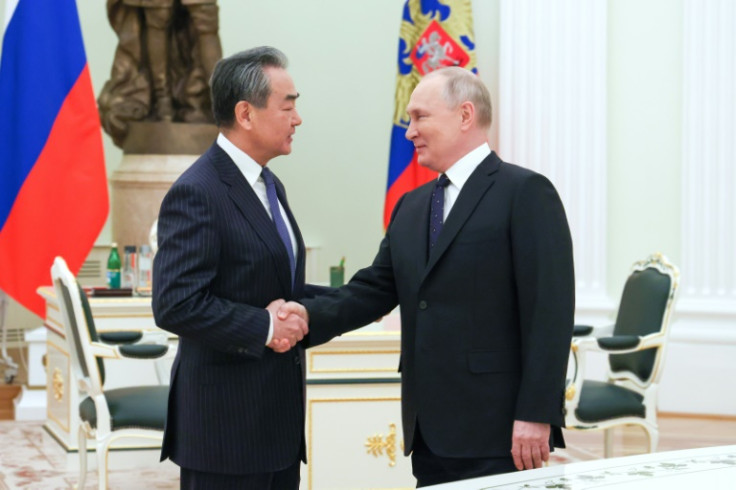AFP
The United States is “confident” that China is considering providing lethal materiel to support the Russian forces invading Ukraine, senior officials said Sunday.
And while they have seen no sign Beijing has done so yet, they underscored the US message this weekend that China should not cross that red line.
“We’re confident that the Chinese leadership is considering the provision of lethal equipment” to Russia, CIA director William Burns told CBS on Sunday in a rare interview.
But, he added, “We also don’t see that a final decision has been made yet, and we don’t see evidence of actual shipments of lethal equipment.”
US officials have launched a broad diplomatic offensive over the past week to warn China against providing such lethal assistance — which experts say could have a profound impact on the war in Ukraine as it enters its second year.
Beijing so far has forcefully denied the allegations.
Media reports, including in The Wall Street Journal and NBC, have cited unidentified US officials as saying China is weighing whether to provide drones and certain munitions to Russia.
German weekly Der Spiegel has reported that Beijing and Moscow are negotiating the possible purchase from a Chinese firm of 100 strike drones for use in Ukraine.
Earlier this month, Secretary of State Antony Blinken shared US concerns directly with China’s top diplomat, Wang Yi, during a tense meeting in the margins of the Munich security conference.
On Wednesday, Wang met in Moscow with President Vladimir Putin, underscoring the close ties between their countries.
US officials say Chinese companies are already providing non-lethal equipment to Russia.
On Sunday, Jake Sullivan, the US national security advisor, made the rounds of the morning talk shows to reinforce Washington’s warnings.
He said the United States would remain “vigilant” about Chinese military supplies to Russia and that there would be consequences should Beijing send lethal weaponry.
“We will continue to send a strong message that we believe that sending military aid to Russia at this time… would be a bad mistake, and China should want no part of it,” he said on CNN.
Sullivan noted that the war in Ukraine poses “real complications” for Beijing, but he reiterated that a decision to help arm Russia would “come at real cost to China.”
Washington has yet to detail what those costs might be, but it does have a large array of available sanctions that could seriously affect the economy of China, one of the largest US trading partners.
US President Joe Biden told ABC on Friday that he had warned Chinese President Xi Jinping last summer that a move to arm Russia would have dire economic repercussions — as it has had for Russia.
“This is not a threat, it’s just a statement,” he said.
During a virtual summit Friday, G7 leaders threatened to impose “severe costs” on any country helping Russia evade sanctions.
The war has placed Beijing in an awkward spot. Its diplomatic and economic ties to Moscow, reinforced over the past year, put it at odds with the US and the broad international coalition supporting Ukraine.
China has avoided condemning Russia’s Ukraine invasion, and on Friday it put forth a 12-point proposal calling for dialogue between the warring sides, respect for territorial integrity and a ban on any use of nuclear weapons.
But from Washington’s perspective, Beijing is attempting to have it “both ways,” a balancing act that grows ever harder to maintain.
“They’re trying to present themselves as neutral and a party for peace,” Blinken told CBS on Friday, “while at the same time aiding and abetting Russia’s war effort.”
Meanwhile, China’s claim to Taiwan — and its increasingly aggressive military presence in that region — make any Chinese-Russian military cooperation all the more worrisome, some US Republican lawmakers say.
“While it may be Ukraine today, it’s going to be Taiwan tomorrow,” Michael McCaul, chair of the House Foreign Affairs Committee, told ABC.
“That’s why this is so important.”

AFP






